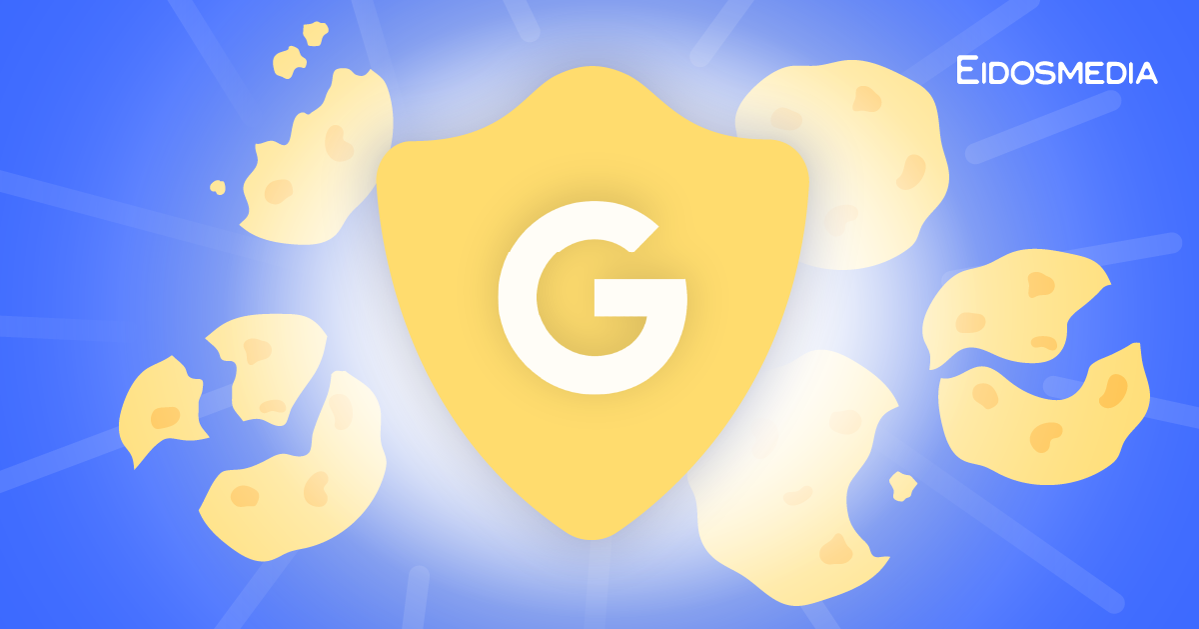Will Google ever kill third-party cookies?
Four years ago Google announced it would be phasing out the use of third-party cookies in its Chrome browser. This month marks the latest in a long series of postponements.
Third-party cookies have long been a cornerstone of online advertising. They enable advertisers to track user behavior across multiple sites and target users with ads no matter where they go. Because of their implications for user privacy, third-party cookies have for some time been blocked by default on Internet browsers like Firefox and Safari.
Google Chrome, however, the most widely use web browser with around 65% of market share, has continued to enable them.
Years after announcing it would kill third-party cookies on Chrome, Google still has not entirely phased out these linchpins of the digital marketing industry. The search giant recently announced third-party cookies will remain operational in Chrome indefinitely, reversing its previous decision to replace them by 2025.
Will third-party cookies ever go away, or are they here to stay? We explore the alternatives and the realities of cookie deprecation.
The importance of third-party cookies in online advertising
Third-party cookies make digital advertising, as we know it, possible. Installed on a user's device, they track browsing history to present the user with personalized ads for products and services. For example, if a user searches for dog food on Chewy.com, they may see ads for Chewy or the dog food they searched for as they travel around the rest of the web.
This is in contrast to the relatively harmless first-party cookies which are placed on a user's device by a website to collect user data they can use to improve user experience or remember preference settings.
Third-party cookies have facilitated a change to targeted ads instead of contextual advertising, allowing advertisers to improve their marketing outcomes. However, as more scrutiny has fallen on invasive tracking — and competitors like Apple have deprecated individual identifiers while Mozilla’s Firefox added Total Cookie Protection in 2023 — Google has been working toward a different solution.
Data privacy concerns: why are third-party cookies controversial?
While privacy concerns around third-party cookies have simmered since their inception, the discussion reached a boiling point in 2018 when the E.U. introduced the General Data Protection Regulation (GDPR), comprehensive data protection legislation. While they play a vital role in targeted advertising, third-party cookies raise many questions about privacy. As GDPR.eu said, “However, cookies can store a wealth of data, enough to potentially identify you without your consent.” GDPR’s counterpart, ePrivacy the Directive, forced sites to ask for consent to collect user data, so we see more pop-ups asking users to confirm their choices.
While third-party cookies do not inherently threaten consumers, privacy-conscious web users find the constant tracking and invasive ads a problem. Still, as the industry shifted toward focusing on user privacy, Google saw the writing on the wall and announced its intentions to make a change - a change which has yet to come to fruition.
Google's journey: from announcement to postponement
In 2019, Google introduced Privacy Sandbox. The initiative’s goal was to enhance privacy on the web while giving businesses access to the data they need for effective advertising.
In 2020, Google announced its intention to deprecate third-party cookies by the end of the year. Along with several others, that deadline came and went as Google kept searching for the right balance between user privacy and business needs.
In 2021, Google suggested an alternative to third-party cookies, allowing advertisers to target ads to groups of consumers with similar interests. This, Google argued, would allow consumers anonymity as part of a larger crowd. As Reuters reported, “The technology, part of a project called the Privacy Sandbox, would use an algorithm to group people according to their common web browsing. Each group would have a minimum membership, so individuals can't be identified.” However, the UK’s Competition and Markets Authority raised monopoly concerns about this solution: “Critics contend Google is banning rivals from building gigantic profiles on users, while developing for itself features in Chrome to continue to add to such dossiers.”
That does not mean Google will not continue working on its Privacy Sandbox solution. Carat reports, “Initial tests have shown promising results, but challenges in remarketing effectiveness persist. The industry must continue to adapt to these changes and explore new market demands.” While the consensus seems to be that first-party data is more important than ever, other solutions are emerging.
For instance, Customer Data Platforms (CDPs) are software that combine data from various tools to create a centralized customer database. The CDP contains data on interactions with an advertiser’s product or service. Advertisers can segment the database in a nearly infinite number of ways.
In the intervening years between Google’s original announcement and now, several other possible alternatives have been developed. Identity solutions, publisher-provided identifiers (PPIDs), contextual advertising, publisher-provided signals (PPS), data clean rooms, and digital fingerprinting are all among some of the potential alternatives. However, with the future of third-party cookies on the world’s most popular internet browser in flux, advertisers are left wondering how to prepare.
Bad news for advertisers and publishers
In early 2024, as a pilot project, the company restricted third-party cookies for 1% of its users, saying that by Q3, it hoped to extend this to 100% of users. Then, at the beginning of Q3, Google announced it would indefinitely postpone its plans to deprecate cookies fully. However, it gave all users the option to opt out of third-party cookies usage in their browser settings.
These changes have occurred against a background of advertisers expressing concerns that the loss of cookies in the world's most popular browser would limit their ability to collect information for personalizing ads. Since Google’s biggest source of income is advertising, their concerns have naturally had considerable weight.
Publishers are another important stakeholder with AdAge predicting back in 2021 that the change could cost publishers $10 billion dollars in lost ad revenue.
The future of online advertising in a post-cookie world
Industry optimists have speculated that digital marketers have been overly reliant on cookies, leading to what Martech calls “complacency, resulting in redundant, disruptive or misaligned campaigns.” Think about all the times you bought a pair of shoes online only to be haunted by ads for those same shoes for days or weeks.
To overcome this issue and build a more sustainable future for ads, Martech advises advertisers to “Combine first-party data with other available data, like Google search intent, social media listening, and market reports. Or go to the source: Talk to your consumers through an email campaign, review their behavior on your website, or run surveys.”
Ultimately, experts advise a return to the fundamentals of advertising, leveraging talented creatives and a customer-centric approach, to make up for the easy targeting afforded by third-party cookies.

